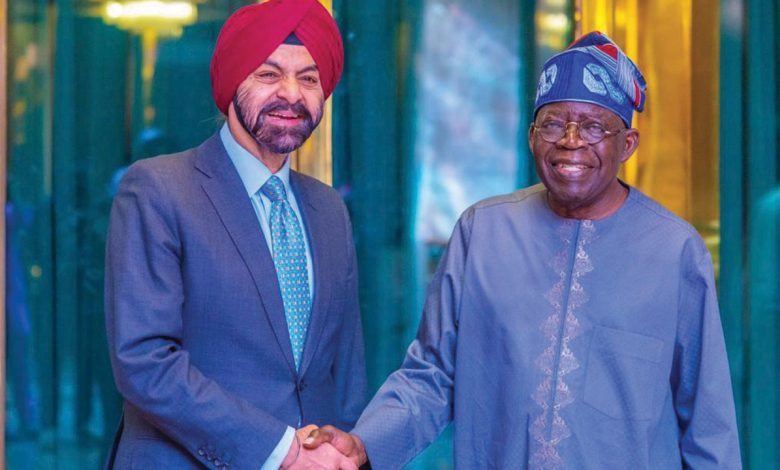World Bank has approved $2.2 billion fresh loans for Tinubu: Finance Minister
The World Bank, pleased with President Bola Tinubu’s macro-fiscal reforms, approved a $2.25 billion loan request for Nigeria to stabilise its economy experiencing its worst cost-of-living crisis, according to Wale Edun, minister of finance and coordinating minister of the economy.
Mr Edun, who heralded the loan approval on Thursday, said that the nation had implemented “bold and necessary reforms to restore macro-economic growth” and, after that, positioned it for the World Bank’s assistance given their commitment to eradicating poverty —even though worsened by the reforms.
At his presidential inauguration in 2023, Mr Tinubu scrapped the fuel subsidy, saying the payment was no longer sustainable for the nation’s dying economy and dwindling revenue. The subsidy removal hiked fuel prices by over 200 per cent, from N170 to N580 and sometimes N680, based on foreign exchange market trends.
The fuel hike was the springboard for skyrocketing inflation in food prices and the prices of other goods and services, and Mr Tinubu’s administration appeared unprepared for the blowback, causing him to seek assistance from foreign entities, including the World Bank.
The bank approved $1.5 billion to assist Nigeria’s newly implemented reforms and an additional $750 million for resource mobilisation programs.
$1.5 billion was released for Reforms for Economic Stabilisation to Enable Transformation (RESET), Development Policy Financing Program and an additional $750 million for Accelerating Resource Mobilisation Reforms (ARMOR) and Program-for-Results (PforR).
Also Read: SERAP tells World Bank to suspend loans to Nigerian States over N87 Trillion Debt
Ousmane Diagana, World Bank vice-president for Western and Central Africa, “praised Nigeria’s efforts” and reaffirmed the Bank’s commitment to reduce the poverty level in Nigeria,” a statement by the finance ministry said Thursday.
“Nigeria’s comprehensive macro-fiscal reforms are placing the country on a new path that can stabilise the economy and lift people out of poverty,” Mr Diagana said. “It is essential to maintain the momentum of these reforms and continue to provide support to the poor and vulnerable to mitigate the impact of the cost-of-living crisis.”













